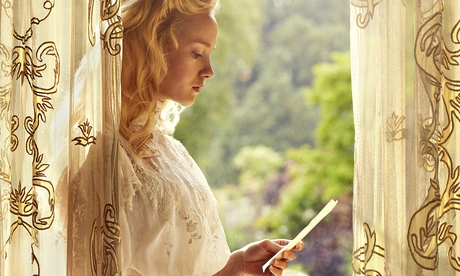The new BBC1 adaptation of Decline and Fall, with Jack Whitehall as Paul Pennyfeather and Eva Longoria as Margot Beste-Chetwynde, has already stirred the usual mixed emotions among Evelyn Waugh fans. On the one hand, warm satisfaction at the prospect of a 20th-century classic brought to a TV channel otherwise graced by Mrs Brown’s Boys; on the other, a faint but congenital wariness, born of the fact that so many dramatisations of the Waugh oeuvre have defied the best intentions of director and cast alike to produce films that, for all their enthusiasm, have sold their onlie begetter woefully short.
Waugh, it turns out, had the same mixed feelings about adaptations. His early novels – notably Vile Bodies (1930), with its tantalising dialogue and artful cross-cuts – display a moviegoer’s relish for cinematic techniques. But by mid-career, Hollywood’s designs on the bestselling Brideshead Revisited (1945) had plunged him into gloom: Christopher Sykes, his first biographer, records an anguished conversation from early 1947 in which, having advised his friend not to worry about the end product and settle for cash over cachet, Sykes received a terrific lecture to the effect that: “You have no notion of what these people might want to do with my book.”
In the event, Waugh decided to take Burbank for a ride, accepting a lavish, all-expenses-paid month-long stay in California while quietly assuring himself that no deal would ever be inked. Come the early 60s, when money was tight, his attitude softened and the last years of his life – he died in 1966 – brought film option sales for Decline and Fall, A Handful of Dust and The Loved One. The latter, directed by Tony Richardson, with Rod Steiger as Mr Joyboy and supporting roles for John Gielgud, Roddy McDowall and Liberace, appeared in his lifetime under the shout-line “The motion picture with something to offend everyone”.
One of those offended was Waugh, who refused to see it, complaining that he preferred the original choice of director (Luis Buñuel) and leading man (Alec Guinness). Thereafter, screen adaptations came thick and fast: late 60s BBC versions of Decline and Fall, with a pre-Rumpole Leo McKern as the pederastic Captain Grimes, and the Sword of Honour trilogy; Granada’s 11-episode take on Brideshead with Jeremy Irons and Anthony Andrews; a small-screen Scoop (1987), scripted by William Boyd; a film A Handful of Dust (1988); and a second TV version of Sword of Honour, also written by Boyd and starring a pre‑Bond Daniel Craig, in the early 2000s.
It is difficult to go completely adrift with Waugh: dialogue alone is enough to carry a certain amount of weak casting or confusion over the precise satirical point. Even Richardson’s The Loved One, as Leslie Halliwell concedes, has its share of “waspish moments”, while the widescreen framing of Bright Young Things (2003), Stephen Fry’s version of Vile Bodies, is nicely irradiated by its attention to detail. Watching Fenella Woolgar playing the part of the Hon Agatha Runcible, Waugh purists could rejoice in the fact that she was the dead spit of her original, the Hon Elizabeth Ponsonby: the scene in which the Hon Agatha takes to the circuit in a torpedo-shaped racing car faithfully reproduces a photograph in the Ponsonby archive.
Of course, attention to detail can bring its own challenges. What about Waugh’s mocking reference to Mrs Beste-Chetwynd’s black courtier, Mr Sebastian Cholmondeley (which, to be fair to Waugh, is a joke about fashionable society women rather than casual racism)?
But in the end, anyone who wants to adapt Waugh for film will be pulled up sharp by a single procedural dilemma. Ominously, the book of his brought most faithfully to television was Brideshead – arguably the least comic, and the most adorned with big roles that can be played by well-known actors. Treatments of the early novels have somehow to address the fact that so much of the humour is verbal rather than visual. When Waugh remarks of the sexy walk affected by one of the evacuees in Put Out More Flags (1942) that “her gait, derived from the cinematograph, was designed to be alluring”, the joke is in the text. A real-live woman doing a sexy walk would not be as funny as the way he describes it.
It is the same with the two‑word signoff appended to Grimes’s marriage to the headmaster’s daughter at the debased Welsh school where he and Pennyfeather affect to teach: “Nothing happened.” If James Wood, late of Rev, can convey something of this verbal dexterity, he will have triumphed on a battlefield piled with the bones of aspiring screenwriters who, like so many interviewing journalists, went to Waugh and lost.
- Decline and Fall is on BBC1 from Friday at 9pm.







